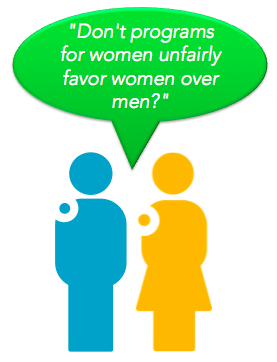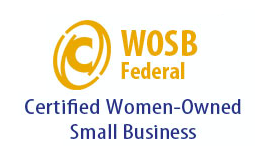 When presenting proposals for their strategic initiatives, D&I executives often face challenges from colleagues in HR who ask something like this:
When presenting proposals for their strategic initiatives, D&I executives often face challenges from colleagues in HR who ask something like this:
"Don't programs for women unfairly favor women over men?"
The question springs from 2 sincerely held beliefs that the:
- HR systems1 they've created are gender-neutral
- Managers who execute these HR systems make decisions and take actions that are gender-neutral
Unfortunately, neither belief is true. If they were, women would be proportionally represented at all levels of leadership. That’s why, to paraphrase a Adam Grant’s challenge to “wake up and smell the inequality,” it’s time for HR to wake up and see the inequality.
HR Systems
- Talent Management (including leadership development and succession)
- Performance Management
- Compensation & benefits
- Recruitment & selection
1 "Systems" as used here refers to formal HR policies and procedures that guide management behavior.
Managers Actions and Decisions
However, even if HR were able to root out every subtle and hidden inequality from their talent, performance, compensation & benefits and recruitment & selection systems, there would still be significant challenges that would require initiatives to level the playing field (feared by some as "favoring women"). This is because HR systems are implemented by human beings with various mindsets about women, men, careers and leadership.
When executing formal HR systems, the mindsets of managers are likely to undermine the most gender-neutral policies and practices. Additionally, managers' mindsets trigger actions that impact informal talent-related actions and decisions.
Executing HR Systems
Managers' mindsets also undermine the gender neutrality of decisions and actions that they take. For example:
- Fair performance management systems can be undermined by gender-biased feedback about communication styles. One Stanford study found that women received 2.5 the amount of feedback as men about aggressive communication styles. And that “women consistently received less feedback tied to business outcomes...that vague feedback is correlated with lower performance review ratings for women — but not for men. In other words, vague feedback can specifically hold women back.”
- Seemingly gender-neutral talent management systems can be undermined by gender-based differences in who is offered development opportunities, who gets developmental assignments, who has informal discussions with managers about the business, and who is invited to external networking opportunities with other professionals, clients, and stakeholders. That’s right: it’s usually men.
- Compensation systems striving for equal pay are subverted by gender differences in starting salary, but also by the offered level of salary increase. Bureau of Labor Statistics Data shows that the gender wage gap widens with age. Women aged 20-24 earn 92.3 percent of men’s earnings, but women 55-64 earn 76.4 percent.
- Recruitment and talent acquisition systems are also prone to gender differences. For example, managers may perceive the same interview answer two different ways depending on whether it comes from a woman or a man. Men are generally expected to self-promote, while women candidates who do are evaluated as "pushy." Managers also may ask women different interview questions altogether, e.g. “do you plan to have kids?”
These gender dynamics ensure that HR can't solve the problem of the gender gap solely by engineering gender-neutral policies, practices, and systems.
Managers' Informal Talent & Performance Actions
Finally, existing informal systems such as informal mentorship, networks, and career coaching also favor men. Decades of studies have found that women are excluded from informal mentorship experiences that lead to sponsorship for advancement. Women still cite the "old boys' network" as a barrier to advancement. And finally, women often do not receive career coaching into the jobs with profit and loss responsibility — jobs that position them for advancement into the highest levels of organizations.
So, HR professional, if you think that women's programs "unfairly favor women over men," it's time to objectively evaluate your HR systems using recent research on the retention and advancement of women. Look for and root out the inequality.
Leading Women offers groundbreaking insights on how to minimize gender bias in recruitment, performance management, talent acquisition, and more. Contact us to learn how transforming HR systems can reduce your organization’s barriers to the advancement of women.
Lead ON!
Susan
Susan L. Colantuono, CEO

+1-401-789-0441
Author: No Ceiling, No Walls and Make the Most of Mentoring
"Leadership is using the greatness in you to achieve and sustain extraordinary outcomes by engaging the greatness in others."
Susan L. Colantuono
About Leading Women
Leading Women is one of the world's premier consulting firms for companies committed to achieving goals for women’s advancement. Its proprietary research is the basis for innovative solutions that deliver unique insights, actionable tools and a business focus. HR, Learning and Development, Diversity & Inclusion and IWiN* clients around the globe have deployed Leading Women's live, virtual and online solutions.
For more information, visit Leading Women, call +1-401-789-0441 or email us info@LeadingWomen.biz.
Leading Women is a certified woman-owned business - WBENC. Partner with Leading Women to advance your supplier diversity goals. *IWiN - internal women's initiatives, ERGs, affinity groups and networks.







